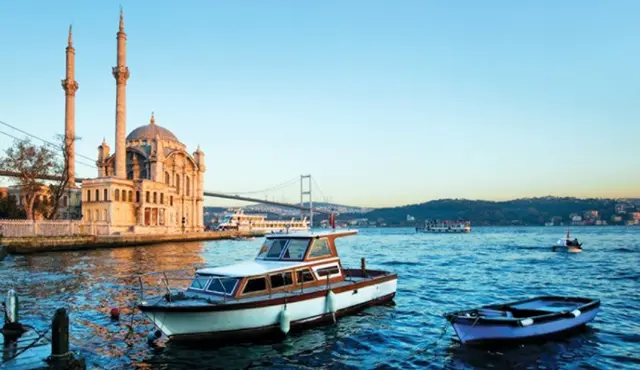Istanbul, the most populous city in Turkey, has been working hard to upgrade security measures in an effort to palliate the lingering fear from a spate of terror attacks and a failed military coup.
The metropolis of 15 million people is endeavoring to be among the safest cities in the world, city officials said.
"Although Istanbul seems like a risky place due to the region we are in, the fact that terror is globalizing and threatening the whole world means that Istanbul is no more at risk than other cities," Istanbul Governor Vasip Sahin told Xinhua.
Stressing that the current risk is being assessed at the maximum level by city administrators and all the necessary precautions have been taken to secure the metropolis, the governor appealed for more tourists to visit Turkey and Istanbul.
Over the past year, Istanbul has been targeted by five suicide bombing attacks carried out by the Islamic State or the outlawed Kurdistan Workers' Party militants, in which at least 76 people were killed and over 320 others wounded.
The triple attack in late June on Istanbul Ataturk Airport, the third busiest in Europe, is the deadliest and most traumatic one, killing 44.
The consequence is serious, as tourist sites in Istanbul and other parts of Turkey have seen a sharp drop in the arrival of foreigners, a development that has chilled the tourism industry.
A police officer who declined to be named told Xinhua that since the airport assault, security has been boosted by 10 to 15 percent not only at the airport but also across the city.
Now special operation teams are patrolling the airport around the clock, with X-ray machines installed at the main entrance to scan vehicles.
"And after the coup attempt on July 15, security measures have been upgraded to a maximum level," the officer added.
The plot by elements within the military pitted the mutineers against police and civilians, claiming at least 30 lives in Istanbul.
After the failed coup, special operation teams have been deployed to entrances of the metro stations and on boats against any possible attack on the city's public transportation system.
Special check points with X-ray scanning systems have also been set up at the entrances of other public transportation stations including Marmaray, the underwater rail tunnel that connects Istanbul's European and Asian parts.
Boosted security measures, meanwhile, have caused long queues during the rush hour.
"Despite the time loss, it is worth waiting for a safe travel," said Itir Bayburtoglu, a commuter.
Yalcin Boncuk, who lives on the European side of Istanbul, said he has to pass through at least two security check points, where he is searched from head to foot, before reaching his office on the Asian part.
"Being in the city is as if we are in a giant airport in terms of security," he said.
In the view of Anastasia Laulaukkanem, a Russian national who visits Istanbul frequently, the security check is the same as any other big city in the world.
"I don't feel myself in danger in this city," she said. "If something will happen to me, if somebody will disturb me on the street, I'm sure many ordinary citizens passing by will help me."
There was a nine percent decrease in public order incidents in Istanbul in 2015 compared with the previous year, according to Sahin.
Despite the fact that almost 900 accidents occur each day in Istanbul, "in terms of general comparison with other metropolises, Istanbul is already among the safest cities," the governor said.
Patrick Keddie, a British journalist living in Istanbul, agreed.
In his opinion, the chance of being robbed in Istanbul is less than being stabbed in London.
"But after the coup attempt, I don't feel safe anymore not for me but for my family," he added.
(APD)
 简体中文
简体中文

